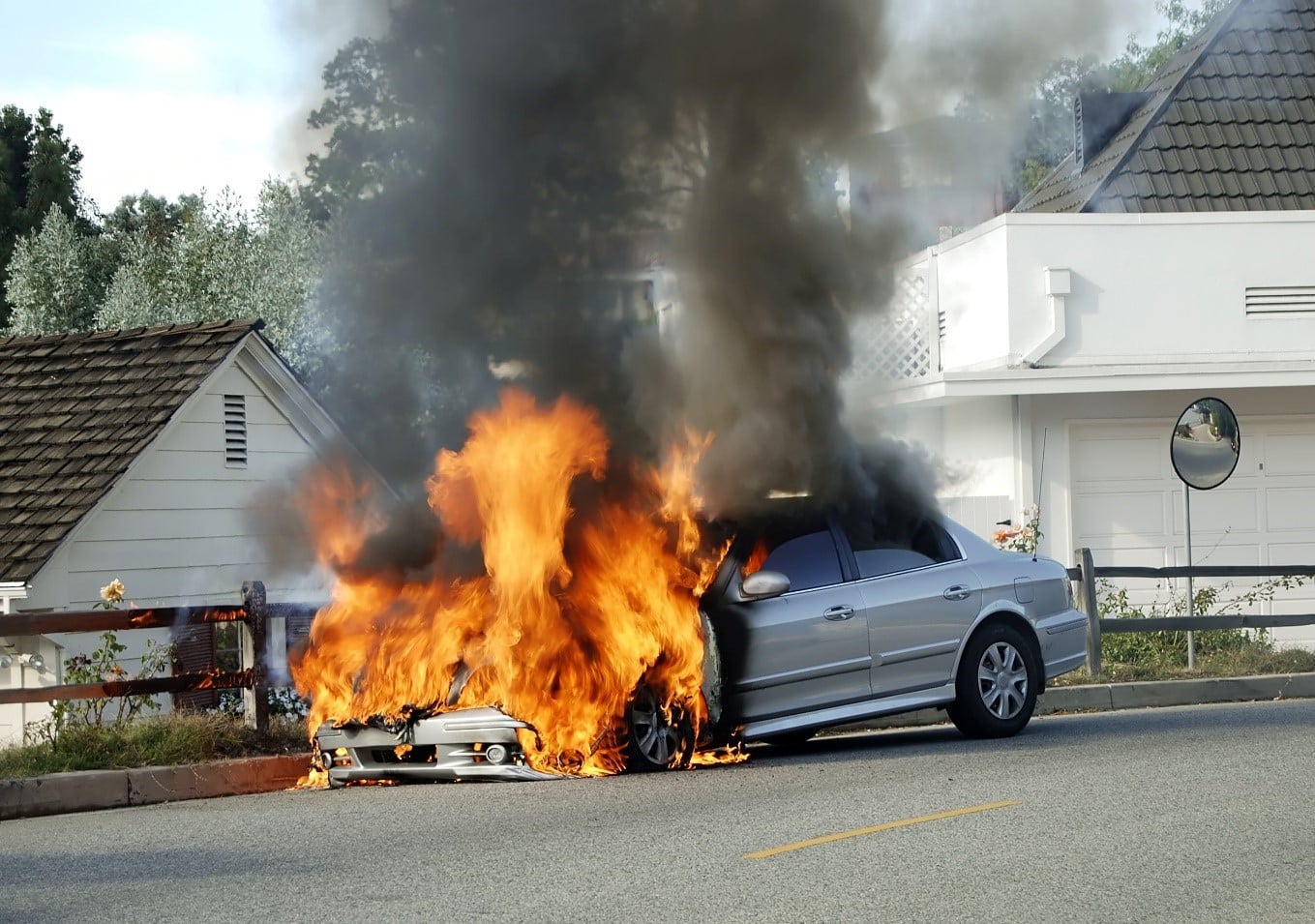An auto collision where the cars burst into flames is likely to cause severe injuries. Victims are likely to suffer burn and smoke-inhalation injuries in addition to injuries from the impact of the collision as well as mental anguish from being trapped in the car. Below are some of the reasons auto collisions can cause fire outbreaks.
Leaking Fluids
A typical car has combustible or flammable fluids. Examples include engine oil and gasoline. Normally, the fluids remain within safe channels, such as fuel lines and oil reservoirs. However, the fluids can leak due to an impact, wear and tear, or damage. Leaking fluids can easily catch fire in an accident if exposed to heated parts of the car, such as the engine.
Causes of fluid leaks include:
- Damaged reservoirs, such as gas tanks or oil pans
- Damaged fluid lines
- Loose gas caps
The cause of the leak determines liability. Consider a motorist who knowingly uses a damaged gas cap. Such a motorist might, in some states, share liability for an accident that ends up in burning cars.
Electrical Failure
Electrical current typically causes fire if the electrical resistance is too high and the conductor overheats. Such electrical failures usually occur if an electrical current passes through an unintended path (short circuit). Causes of electrical failures include:
- Faulty batteries
- Worn electrical wires
- Damaged electrical wires
For example, the impact of an accident can sever electrical cables under the hood and trigger a short circuit. Such a short circuit can cause an electrical fire, which doesn’t require fuel to burn. In such a case, the person responsible for the accident would most likely be liable for the ensuing fire too.
Overheating
A car can overheat due to multiple reasons in various places. For example:
- The engine can overheat
- The exhaust system can overheat
- Mechanical parts under stress or friction can overheat
Overheating can trigger a fire if the heat encounters the right material. Such fires usually start sometime after the initial impact of the accident. For example, an overheated catalytic converter can trigger fire if flammable materials come near it.
In this case, the cause of the overheating can determine liability for the accident. For example, if the accident investigation reveals poor maintenance, then the car’s owner might be liable in some states for the burn injuries of any passengers.
Existing Debris or Spills
A dirty car is more likely to burst into flames after a crash than a clean car. The risk is especially high if the dirt or debris is flammable or combustible. For example, spilled oil or fuel and used gas cans increase fire risk in a crash. Debris in or near the engine compartment or exhaust system is especially dangerous since those areas are usually hot.
Design or Manufacturing Defects
Defective cars can catch fire in circumstances where other cars wouldn’t catch fire at all. Here are some car defects that might trigger fires:
- Defects that allow metal shavings to mix with engine oil and pass into the engine
- Oil pans that leak even without damage
- Engine blocks that corrode easily and allow fuel to leak
In such cases, the manufacturer or designer may share responsibility for accident damages.
Dangerous Cargo
In some cases, a car bursts into a flame after an accident and not because of the damage, but because of the cargo it carries. Examples include flammable, combustible, and explosive cargo. For example, a truck ferrying fireworks or gas cylinders can easily burst into flames after a crash.
In this case, strict liability might apply, depending on the nature of the cargo. Strict liability holds a defendant liable for damages irrespective of their conduct. For example, a trucker carrying explosives might be liable for a fire their truck causes even if their actions don’t cause the accident.
The Jaklitsch Law Group has over 75 years of combined legal experience. We can help you recover your damages irrespective of your accident’s nature. Contact us for a free initial consultation to determine how to recover your compensation.

